Student Blog Collection
Finding a dissertation topic
I still remember the moment: a Q&A with students on a virtual open day before I started my studies here and one of the students recommends to think about a topic for your Master's thesis even before you come to Warwick. I was shocked, as I hadn't even finished writing my Bachelor's thesis at the time.
But don’t stress! Even though at WMG we decided on our dissertation topic very early, within the first term, it's no problem if you don't know what you want to write about at the beginning of your studies. You also don't have to come up with a topic completely on your own, although this is of course possible, you should have an idea for it in mind. Instead, there is a project selection system in which all potential project supervisors are listed with their subject areas. So we could easily filter by our areas of interest and see which supervisor is willing to supervise which topics. Then we could talk to the supervisor about this and potential questions and if everything fits, we can imagine working with the supervisor and they also have the capacity to supervise a student, we applied for the project.
So even if you don't need a specific research question yet, it helps to think about possible areas of interest early on. For example, I knew that I wanted to do a project with an environmental sustainability focus, preferably in the automotive industry. So I filtered the system by automotive industry, went through the different proposed projects, picked my favourites and finally got stuck with hydrogen vehicles. Together with my supervisor, I came up with the specific question within the next few weeks or months. So after I had my rough topic, I looked at it.
In summary, don't panic, you will get enough support to define a project topic that really interests you. Interest is very important here because you spend months on the project and without interest, at least I tend to lose my motivation relatively quickly. Unfortunately, the thesis doesn't write itself in the end.
Good luck
Henrike Weglage (ITM)

Daytrip #2 – Cardiff
Hi guys!
Admittedly, not necessarily in daytrip-distance, but definitely worth a visit is Cardiff! I was there in mid-April, in the best weather, and I have to say I'm impressed. The city itself has a great vibe, lots of cafes and pubs in the city centre and on Cardiff Bay.
But from the beginning. Our first stop was at the market hall. A beautiful, classic market hall in the middle of the city centre, so actually you can't miss it. Here you can find a snack for every taste. And since it is in the middle of the city centre, you can stroll through, browse in the shops or sit down in a café or pub.
But I can only recommend not to forget the time here and go to the Bay as well. There are even more pubs, restaurants and cafes here and the atmosphere when we were there was very relaxed. I heard someone somewhere say that Cardiff was like a little London and we definitely got the vibe here. There is even a small Ferris wheel at the Bay (miniature London eye?) and you can take a speedboat tour. If you don't want to sit down in a pub, you can just buy an ice cream or welsh cake (highly recommended!) and watch the hustle and bustle from one of the benches right by the water.
Unfortunately, we were just passing through, so we didn't have that much time, but in the end, we went to Cardiff Castle. And here, too, the holiday mood came straight away. On a large meadow surrounded by the castle walls, families and groups of friends had picnics, played ball games or simply enjoyed the sun. Due to our limited time, we didn't go to any museums or into the castle building itself, but even so, I can say don't miss out on a stop here!
I absolutely plan to go back to Cardiff with more time in my luggage and can only say pack your bags and plan your trip to the capital of Wales.
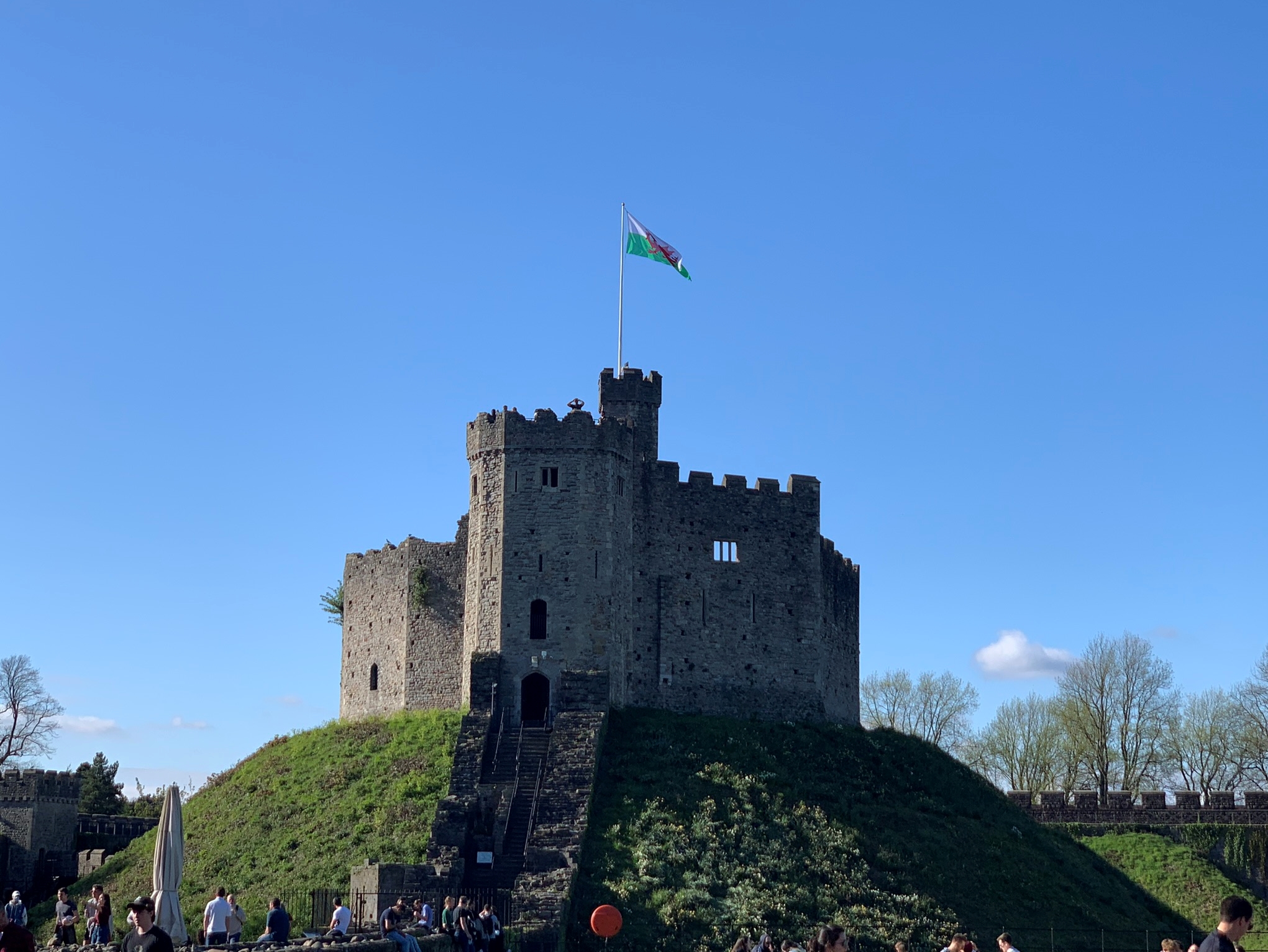
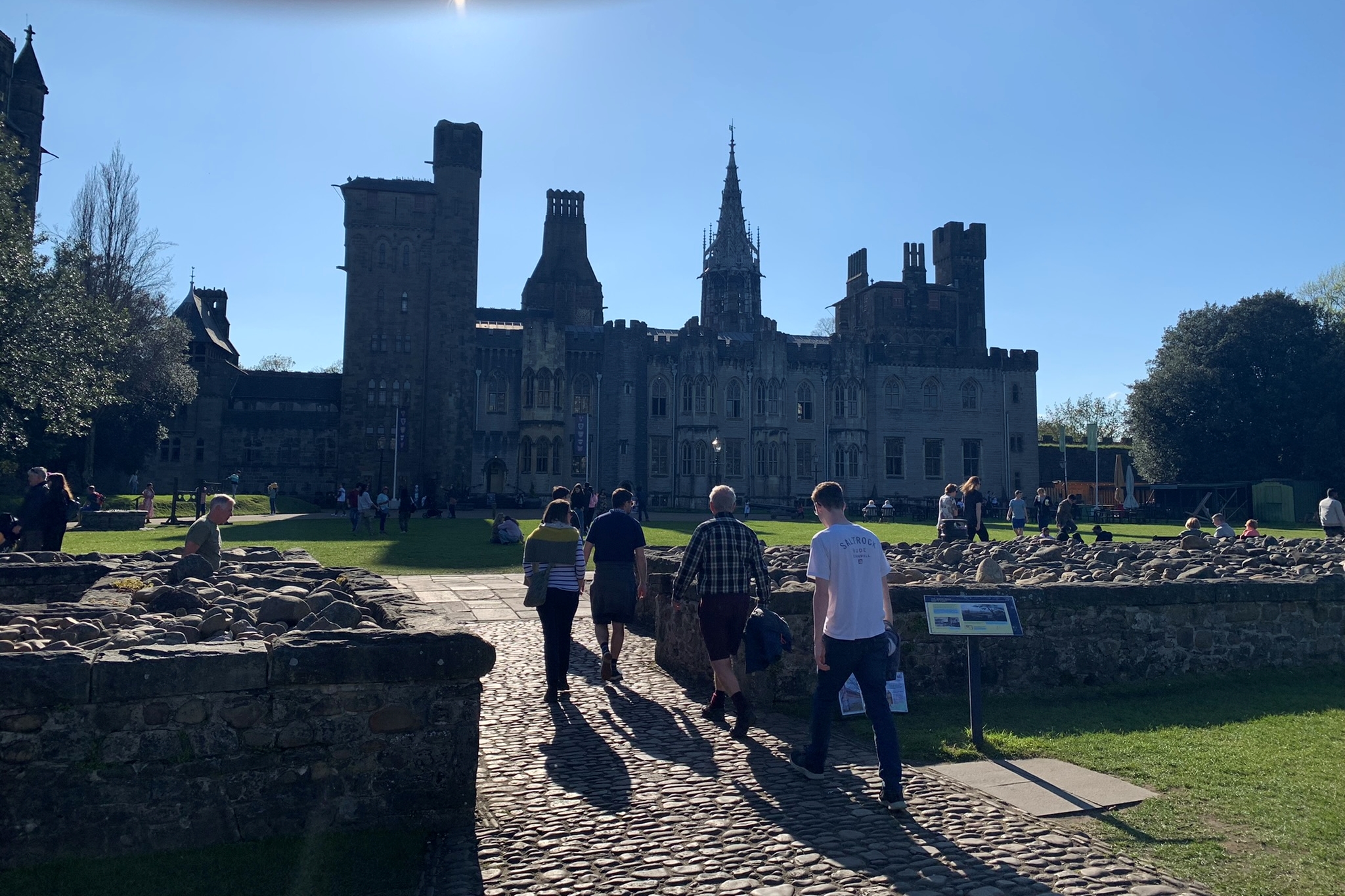
Cardiff Castle
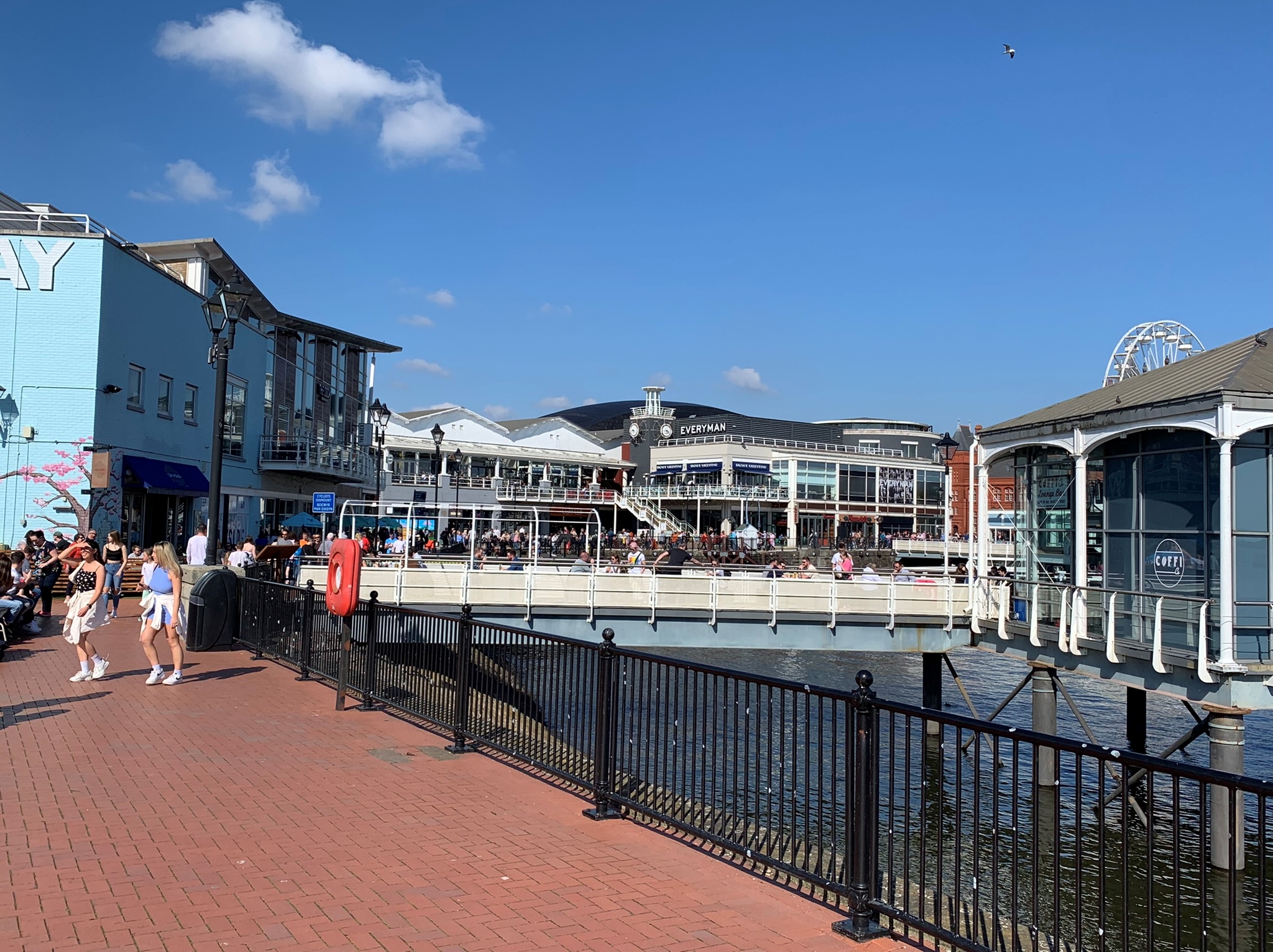
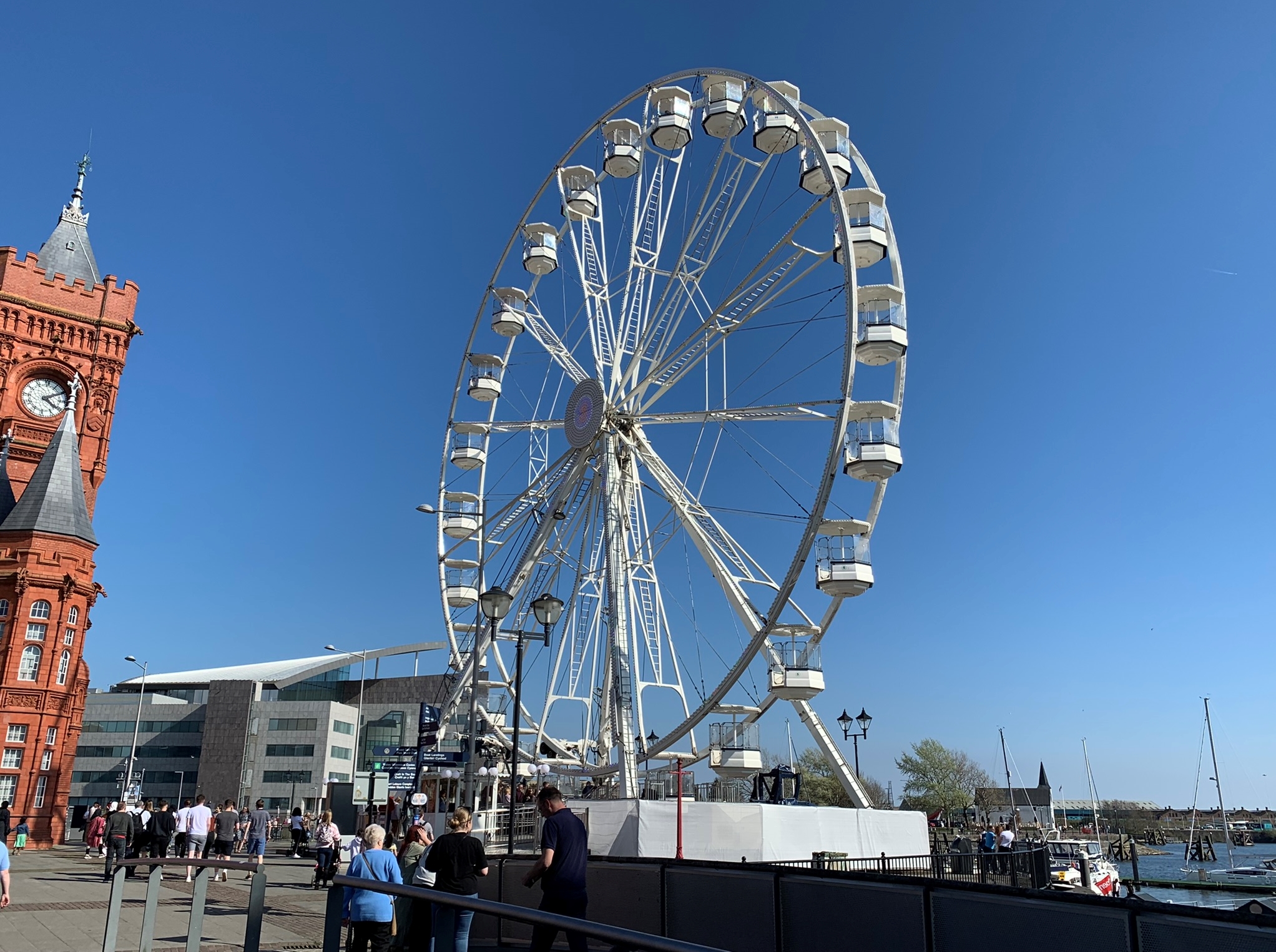
Bay
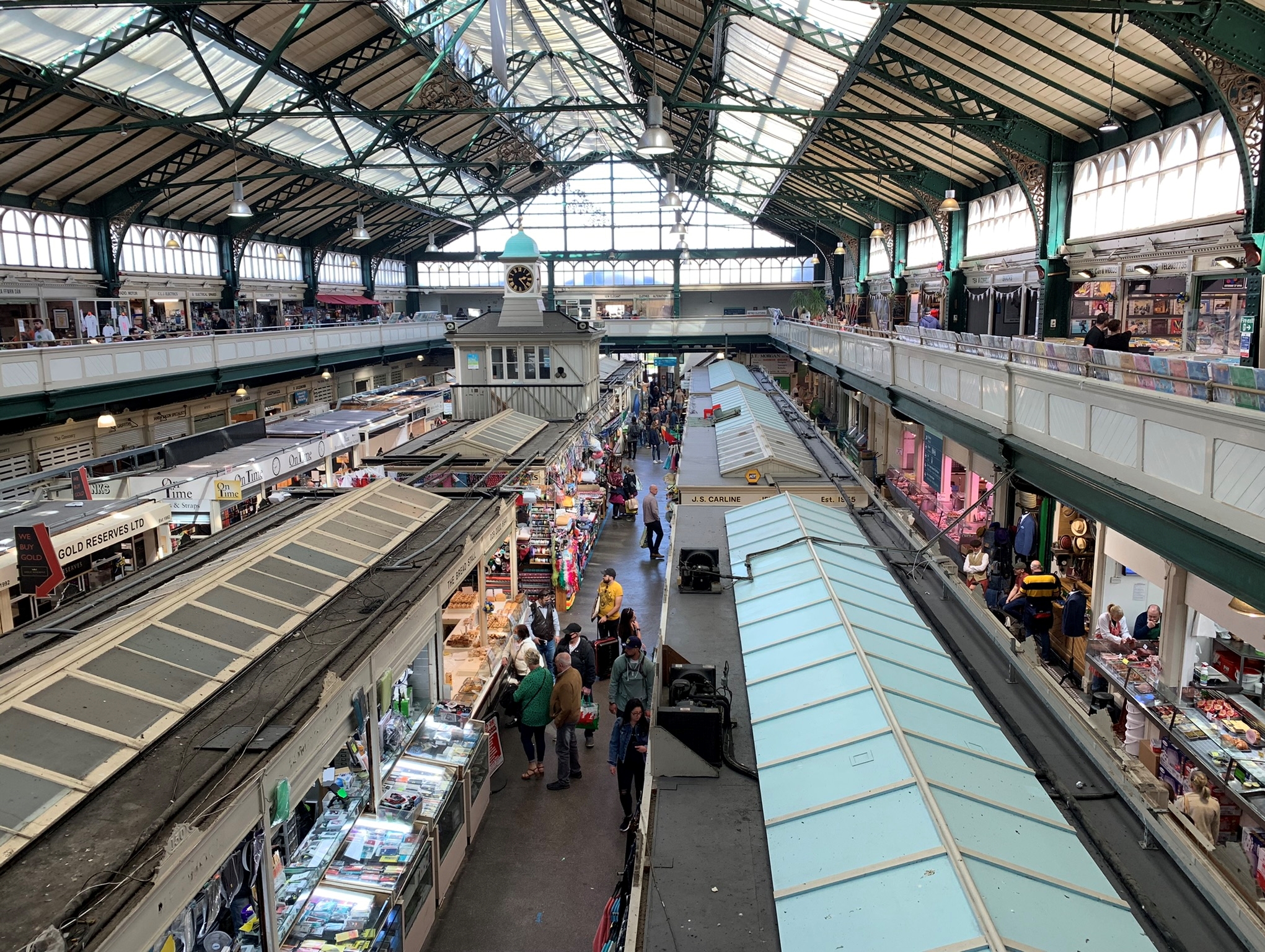
Market Hall
Henrike
ITM
For all foodies - where to find vegetarian and vegan food
Who doesn't love food? But all vegetarians or vegans probably also know the worry of finding enough meat or animal product-free food in new places. I can put your mind at ease here because so far I've been able to find it everywhere.
Let's start with the campus. The University of Warwick does not have a canteen or cafeteria, as you might know from other universities, but instead, there are a few cafés, pubs and other dining options and in all these cafés you can get milk alternatives instead of cow's milk with your coffee or hot chocolate. Vegan cakes are also on offer, and I can personally recommend the vegan brownie from Curiositea or the Library.
But even for the "real" food, there are vegetarian or vegan options, both in the Breadoven and the Pubs or for sandwiches from the cafés, so that actually everyone will find what they are looking for. And even if not, there is also a small supermarket right next to the Piazza on campus - roots. Here you can find all the essentials as well as a selection of salads, sandwiches, pastries and warm snacks.
For weekly grocery shopping, vegetarian and vegan alternatives are best found at Sainsbury's or Tesco. There is a Tesco right next to campus and they have a wide range of plant-based products, including ready meals, for those lazy evenings.
Aldi also has a few alternative products, but only in a relatively limited range. I have already found vegan cheddar here, there are for example plant-based burger patties, and of course oat and almond milk. However, you don't necessarily find everything and these products may be already sold out or not always offered. On the other hand, it is much cheaper here, since you know, plant-based products can be quite pricey, which is why it may be worthwhile to shop here and go to Tesco for the missing products.
And I can also reassure you about going out to eat. In Coventry and Leamington, there are many different restaurants and cuisines and most of them serve vegetarian and vegan products. Allergies are also usually catered for very nicely.
Enjoy!
Henrike
ITM
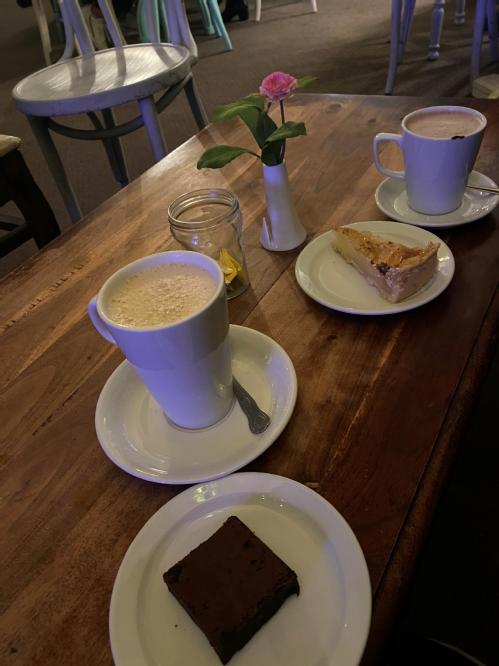
vegan brownie at Curiositea
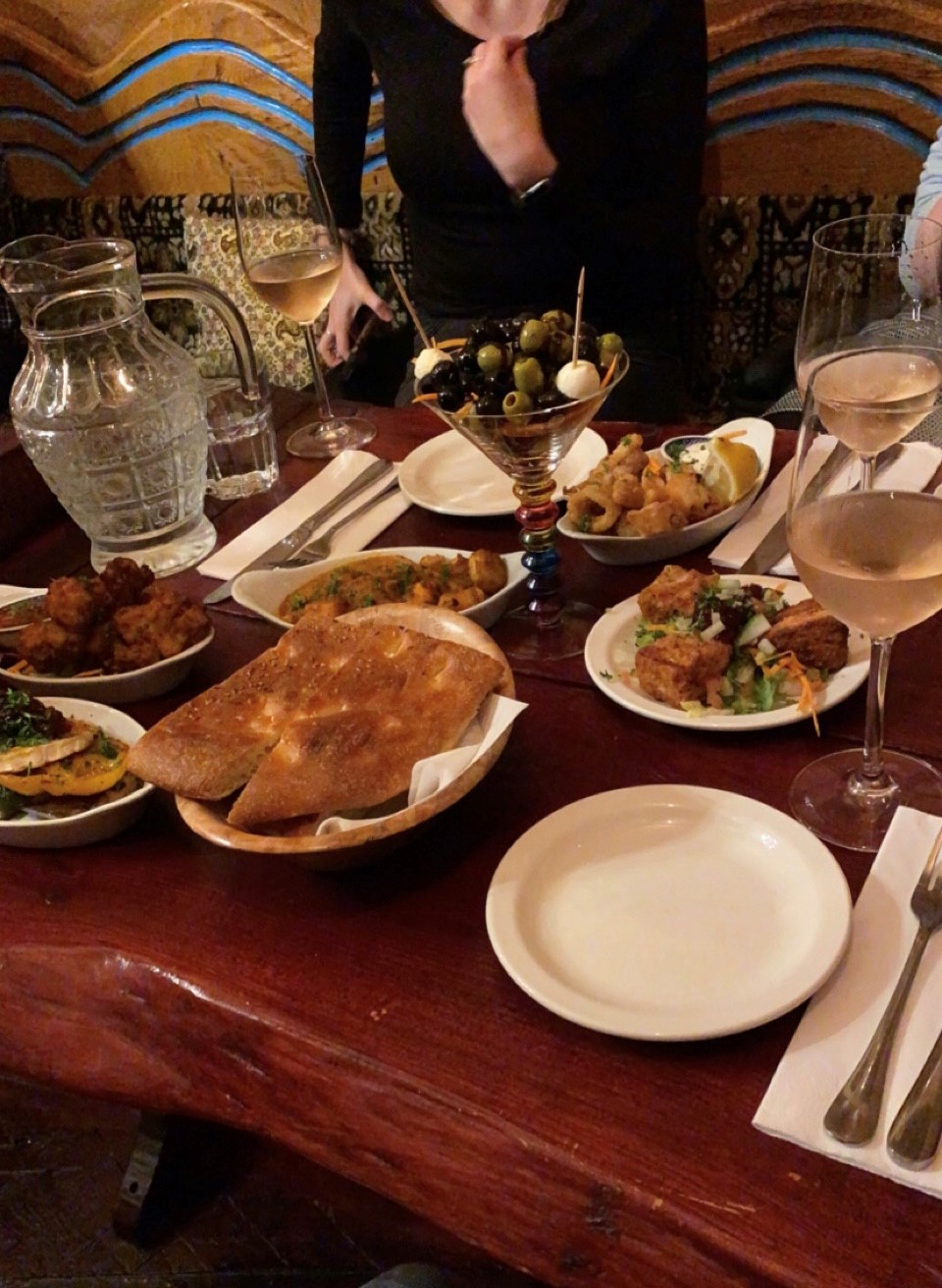
restaurant in Leamington
How to approach a PMA
Hi everyone!
When I came to Warwick, the structure of a 1-2 weeks module in a block followed by a post-module assignment (PMA) was a big change for me in terms of the way I studied. You have around 4 weeks for these PMAs and they go by faster than you think.
Even if the change to this block system takes some getting used to, I like the idea of the PMAs because it allows you to apply what you have learned and deepen your knowledge. We all know it, you sit in a lecture, think you have understood everything and don't need to write it down because "You'll remember that". A few weeks pass and the only thing you remember is the fact that you thought taking notes would be unnecessary. And even though the modules are usually very interactive, the PMAs helped me to really remember what I had learned in the long term.
Now here is my approach to completing a PMA without having to pull all-nighters on the weekend before the submission
1. Start early
I know, a very classic tip, and what can you call it if you translate newton's 1st law of motion to students? A student will not change their state of procrastination unless the stress becomes great enough. But seriously - starting early helps. Right after the module, what you've learned is still fresh and you remember most of it. It also gives you the freedom to work on one topic of the PMA for half of the day instead of the whole day, and the other half on your dissertation, for example. That way you don't get tired of a topic so quickly.
2. Initial research
I like to do some rough research on the topic I'm writing about first, to get an overview of what's involved. This then helps me for my next step.
3. Narrow topic down
In almost all of my PMAs, I had the freedom to influence the area to which I wanted to apply the question. So, building on my previous research, I narrowed down the topic to be able to go into detail here. This helps a lot to stay within the word limit because surprisingly it is more difficult not to exceed it and still go into detail. The more specific the topic is, the easier it becomes and at the same time, you show that you really understand what you have learned and can apply it individually.
4. Set structure
Once I have decided on my "special field", I think about a structure in which I would like to answer the questions. This is not 100% fixed, of course, but it helps me with the deeper research.
5. Deeper research
Journal articles, books, when appropriate industry insights, other case studies etc. the possibilities are seemingly endless :)
6. Take notes
I create tables on OneNote or excel, either one per question or one per subchapter, in which I make notes and always note the source in a column behind it. This way I keep track of what is in which source and which sources either confirm or contradict each other. I can only recommend this to avoid unintentional plagiarism.
7. Write up
Once I have my notes together, I rewrite them into a chapter. Rewording is super important here, again to avoid plagiarism. Details and tips on how to do this can be found in the SPA module, which all Master's students at WMG complete in parallel to the normal student routine.
8. Use referencing tool
Referencing tools such as Endnote help to correctly reference and manage sources
9. Proofread
I always leave some time in the end to proofread my PMA with a certain distance. Preferably at least one day after I have finished writing, to avoid "operational blindness".
I hope this helps you with your future PMAs and good luck!
Henrike
ITM
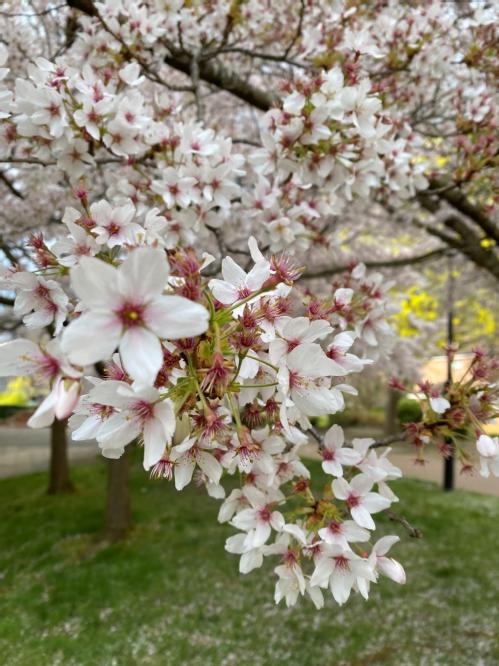
Living in Canley
Hi guys,
after I got my offer from Warwick, one of my first worries was where I want to live and how a find a place there. In the end, I decided not to live in student accommodation on campus, but in a house in Canley, which I share with other students. I would now like to take you with me and tell you why I decided to live here, how I like it here and how I found the accommodation.
So from the beginning, why did I decide against a student residence and for a shared house off-campus? The reason is actually quite simple. I had lived in a student hall of residence before and didn't feel like moving back into one. I wanted to be able to talk to the people I was moving in with beforehand so that I could choose more actively where exactly I was going to live.
I found my final accommodation on Facebook, where there are 2 groups where Warwick students are looking for or offering accommodation, one is University of Warwick Accommodation 2022/23: Find Rooms, Houses, Housemates... and Warwick postgraduate students looking for housemates. In addition to the Facebook groups, I checked the Student Union forum (https://www.warwicksu.com/forums/topiclist/630/) and spareroom (https://www.spareroom.co.uk/) from time to time to see if there was anything suitable.
All in all, I am very happy with my decision. Canley is relatively close to campus, so I can be at the university in 5-10 minutes by bike or 20 minutes on foot. I also pay a little less for an en-suite room here than I would have on campus. Quite a few Warwick students are living in the area, probably because it is so close to campus. However, is more of a residential area. You don't really find cafes, restaurants, pubs or anything like that here. For that, you either have to go to the campus, towards the city centre, Earlsdon, or to Leamington Spa, where a lot of students also live. Some people believe that Canley is not necessarily the nicest area, but the decisive factor for me, why I didn't move to Leamington or similar, was the proximity to the campus, as I didn't want to be dependent on buses.
I hope this helped with your thoughts about a suitable place to live.
Henrike Weglage
ITM


Daytrip #1 – Oxford
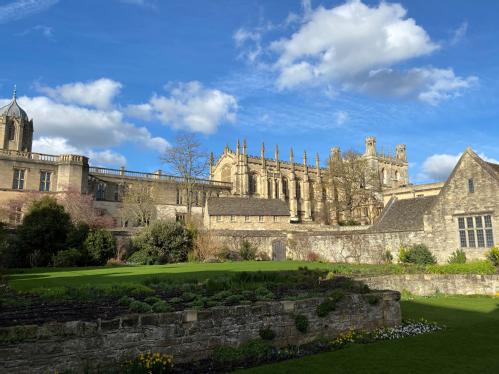
One of the best things about Coventry is its location in the heart of England, with many destinations in day-trip-distance. Therefore, I thought I’d make a series about the day trips I do during my time here and give you some ideas of what you could do on the weekends
Only ~45 min by train away lies one of my absolute favourites – Oxford. So, checking the weather forecast, coordinating with 2 friends and off we went on a Saturday in March. Our train left shortly after 9 in the morning, so we could start with a relaxed breakfast in Oxford. Afterwards, we walked through the city a bit, past all the old colleges, and took a look at them from the outside. The weekend we were there, some of the colleges had graduation, so the whole city was full of graduates in their robes and hats, very fitting for the cityscape. On our way, we stopped at the covered market. Personally, I love market halls, so that felt like heaven for me. Here we found not only flowers and the like, but also food stalls and patisseries.
Afterwards, we went to the History of Science Museum, the entrance was free and the two small exhibitions there, with many old globes and old medical equipment, were definitely worth seeing. At lunchtime, we climbed the tower of the University Church of St. Mary The Virgin. The view from up there is simply amazing (photo 2)! You can see the whole city from above and also look directly at Radcliffe Camera. And don't forget the scones, which we had in the café directly below (photo 3). There is nothing left to be wished for a perfect afternoon tea.
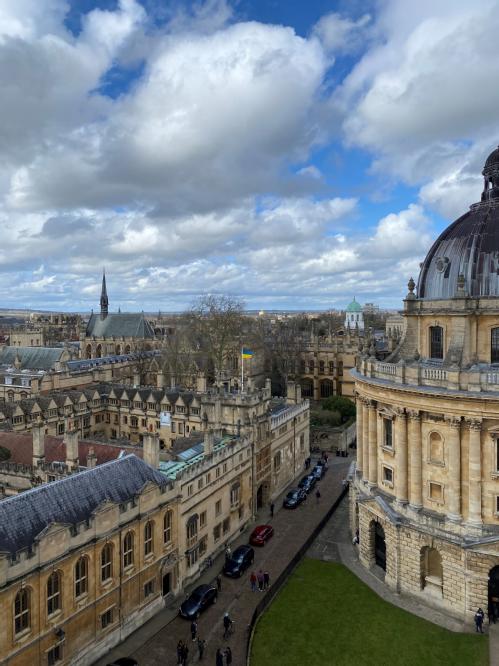
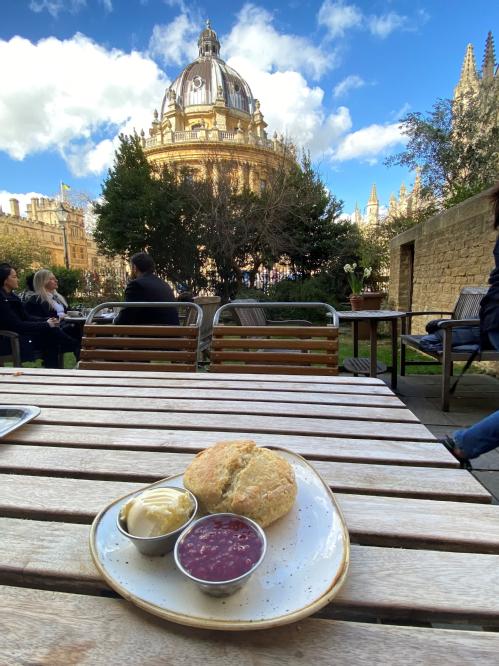
If you're already in Oxford, of course, you can't miss seeing at least one of the famous colleges from the inside. Especially if you're a Harry Potter fan. The inspirations taken from here are clearly recognisable, apart from the fact that some scenes were actually filmed here. Due to graduations, many colleges were closed when we were there, but we were lucky and were able to see Magdalen College from the inside. Surprisingly, they even have a meadow with deer here.
We ended the evening in one of the countless pubs in Oxford before returning to Coventry by train.
Altogether, Oxford is an amazing city. I just love the vibe and how the city is full of students. There are so many cute cafés and cosy old Pubs, so the city is definitely worth a visit!
Henrike, ITM
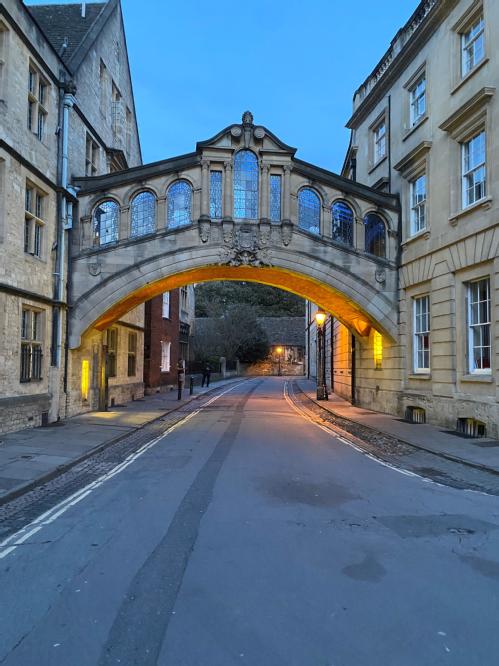
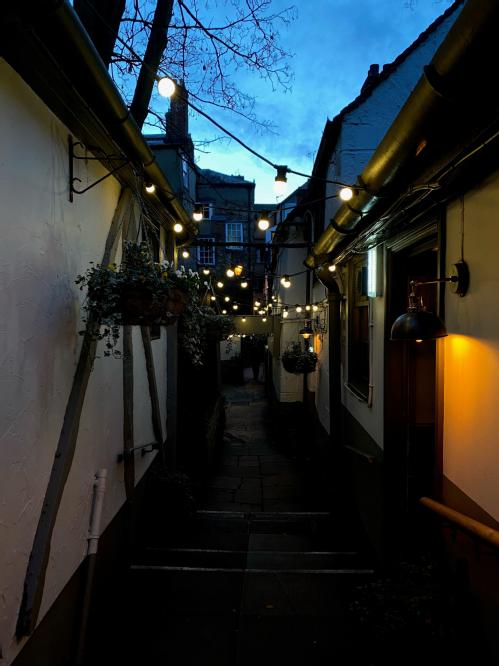
My everyday life – during a module
Hey again,
In case you don’t know that already and haven’t read my previous post, here comes a short introductory explanation: my Master's programme is structured in such a way that we have the modules in blocks. So, we have a module for 1-2 weeks at a time (depending on the module) and then usually a few weeks off in which we can deal with post-module assignments (PMAs) and the Master's project. Whether and how much time we have between two modules is not fixed and also depends, for example, on which elective modules we have chosen.
I now want to give you an inside about what my day looked like on average during the modules after I completed 4 of them.
7:00 am: My alarm usually goes off at 07:00 so I can get up and have breakfast in peace and quiet.
08:30 am: I leave my house at around 08:30 so that I am on campus roughly 10 minutes early and therefore ready to start working punctually at the start of lectures at 09:00 a.m.
09:00-10:30 am: first lesson block. It is really important to say that not every module has such lecture blocks every day and thus not necessarily such firmly scheduled breaks that follow. When we are in group work, for example, we can, of course, arrange our own breaks. So this is just an example of what it often looked like in my modules so far.
Short break
until 12:30 pm: second lesson block. Again: not necessarily lectures, could also be group work on case studies
12:30-01:30 pm: lunch break
After 1:30 pm: lectures again or group work (or both), of course with breaks in between. When exactly our day ends always varies, in my previous module usually between 05:00 and 06:30 pm.
During the module weeks, I usually don't do that much else, often I just cook my lunch for the next day in the evening and chill at home with my flatmates. If we finish our work a bit earlier, I might meet friends for dinner or try to motivate myself to go to the gym. But to be honest, these module weeks, as exciting as the module may be, can be very exhausting, so I tend to put such things on the weekend during this time. This may seem a little confusing at first glance, but in the end, I always had the feeling that the modules just flew past me.
Henrike
MSc International Technology Management
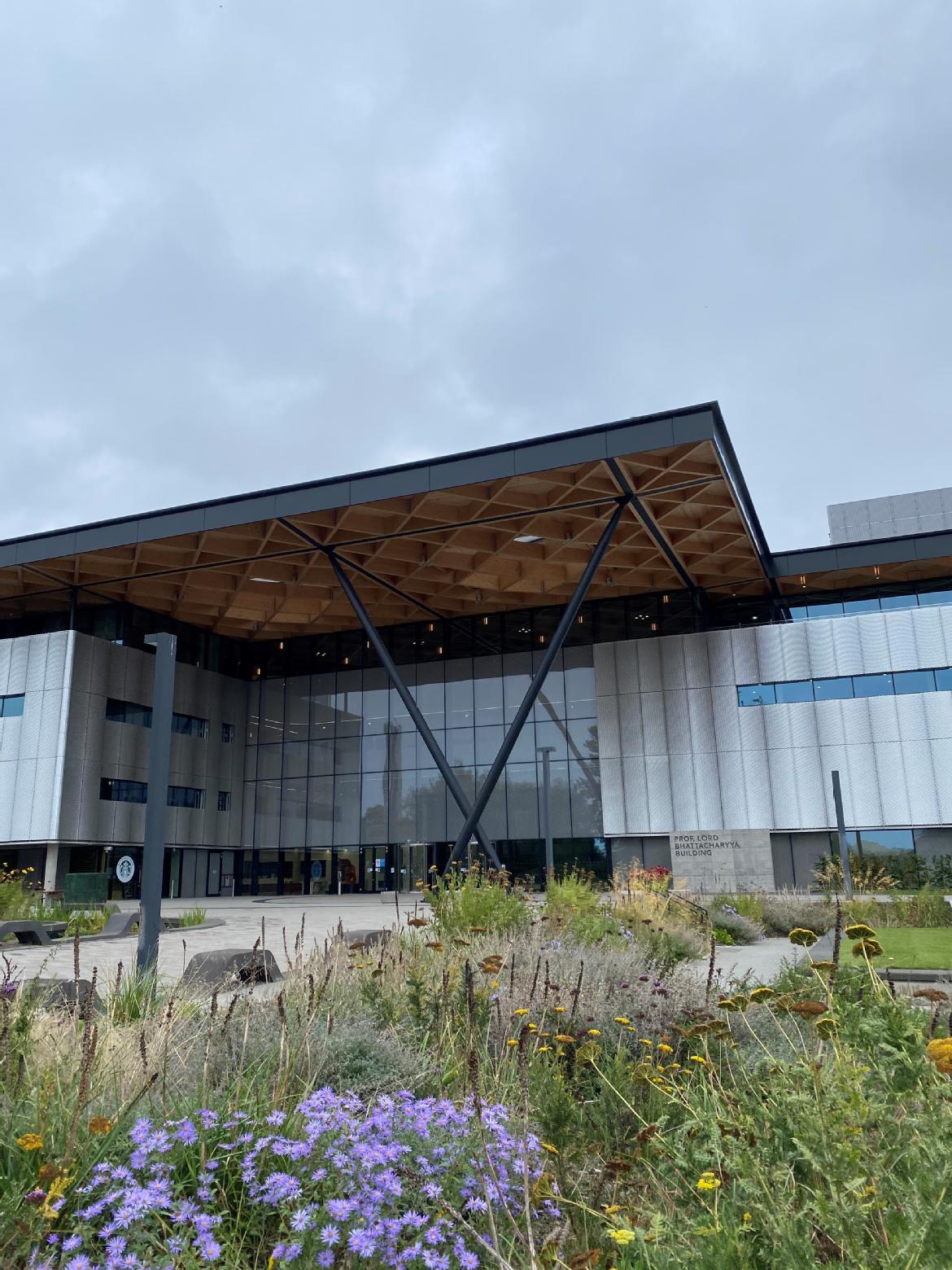
My everyday life – module-free time
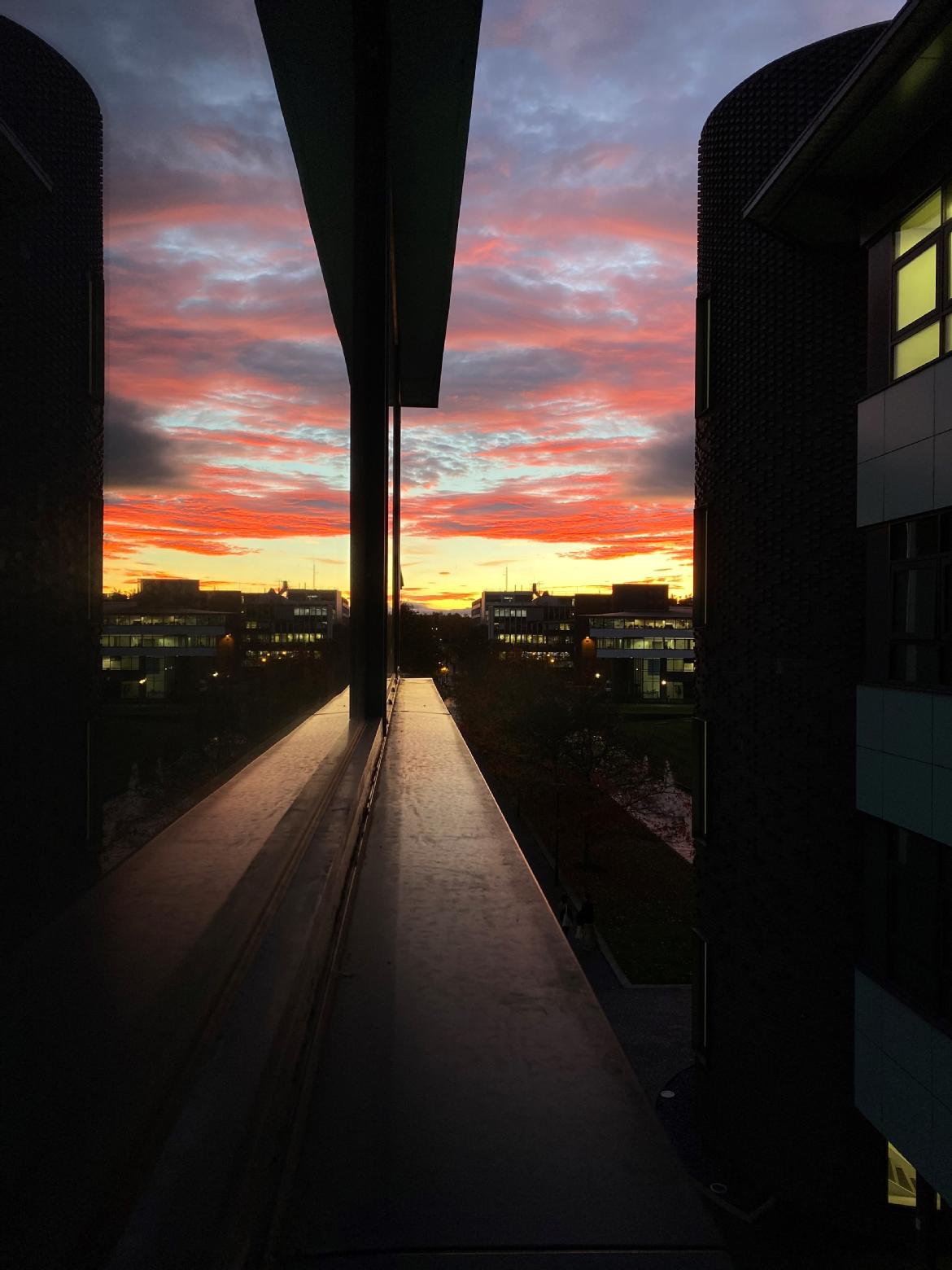
Hi there,
you might have heard already, my Master's programme is structured in such a way that we have the modules in blocks. So, we have a module for 1-2 weeks at a time (depending on the module) and then usually a few weeks off in which we can deal with post-module assignments (PMAs) and the Master's project. Whether and how much time we have between two modules is not fixed and also depends, for example, on which elective modules we have chosen. In order to give you a small insight into a possible daily routine of an ITM student, I would like to introduce you to my average weekday during the module-free time.
7:00-9:00 am: I usually get up between 7-8 am, eat breakfast in peace and get ready. After that, I pack my back and make my way to campus.
9:00 am - 12:30 pm: working on whatever is on, either PMAs or my Master’s project. Personally, I prefer to work on campus, for example at the postgraduate hub or one of the WMG buildings. But there are many other possible places to study, e.g. at the library.
12:30-01:00pm: lunchtime. There are microwaves all over campus where you can heat up your food, or you can get food from one of the many food places on campus.
01:00-4:30 pm: work again
After 4:30 pm: Now is the time to meet friends, go to the gym, prepare my lunch for the next day or just chill.
Of course, every day looks different, and I wish I were so structured that every weekday actually looked like this for me, but this is just a general structure that I try to follow. In between, naturally, short breaks have to be built into the work phases every now and then. The nice thing about the module-free time is that we are very flexible. We can also spend a weekday not working (or not working as much) if we have something else planned, and can adjust our schedule accordingly.
I hope this blog entry helps you to get an idea about the daily life of an ITM student in 2021/22.
Henrike
MSc International Technology Management
